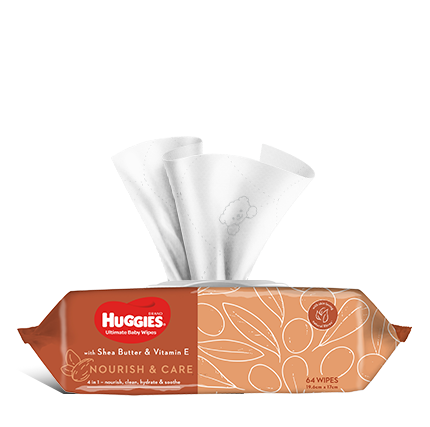The general recommendation from health professionals for mothers who are breastfeeding is to avoid taking drugs. However, for all sorts of reasons this is not always possible. Sometimes the risk of an untreated medical condition is higher than the potential harm to a baby. Weighing up benefit versus risk is best done in collaboration with a doctor, pharmacist and mothers themselves.
It is always good practice to remind your treating doctor that you are breastfeeding and not assume they know this or can remember it. You are the best advocate for yourself and your baby. It is also recommended that you double check with a pharmacist that the medication you intend to take or, have been prescribed is suitable. Seeking information and
reassurance can take time, but it always pays to be safe.
Read the product information leaflets which are commonly included in medication packaging, particularly the sections titled “Contraindications” and “Use during Pregnancy and Lactation”. Check the list of contacts at the end of this
article if you require further confirmation.
Importantly, if you don’t feel you have enough information to make an informed choice about the medication you need to take, withhold taking it until you are sure.
How Drugs are Transferred into Breast Milk
The glands which produce milk in the breast are supplied by a fine network of blood vessels. Across the membranes of these vessels, small particles of drugs can be transferred from a mother’s bloodstream to her milk. Drugs which dissolve more easily in fat tend to be more readily transferrable and in a more concentrated state than other drugs.
In the same manner that the placenta acts as a transport medium during pregnancy, a mother’s breast milk can function in the same way during lactation. Whatever medication a mother takes, small amounts will find their way into her milk supply. Exactly what concentration filters through is unclear but we do know that even small amounts of some drugs can pose a risk to a young child. However, many medications break down into such minute amounts that they do not present any danger to the baby.
Why Babies and Children Are Affected Differently
It is worth remembering that small babies and children have a much lower body weight and mass than adults do. This means that they respond to a significantly lower dose of medications than an adult does. There are also major differences in the way a child’s body distributes fat as well as their body composition and water concentration. The baby or child’s development, age and evolving organ function also needs to be taken into account when any medication is being introduced via breast milk.
Importantly, a young child’s liver is immature and not fully capable of breaking down drugs as an adult is able to. Similarly, a young child’s kidneys cannot excrete drugs as efficiently as an adult. This can lead to a dangerously high concentration of drugs being sustained over a longer period of time as drugs are retained.
Common Side Effects of Drugs
- Sedative drugs can cause sleepiness in a baby or a change in their level of settledness. This can lead to problems with feeding and if left unmanaged, decreases in weight gain.
- Antibiotics can lead to a sensitisation process within the baby and influence their effectiveness in later life. They can also cause diarrhoea and gut discomfort in babies who are breastfed. Occasionally a rash can appear on a baby whose mother is taking antibiotics.
- When a mother is taking medication for constipation, this can lead to her baby having loose bowel motions. Windiness, nappy rash with excoriation, and a change in weight gain can also occur if this continues.
- Rashes, itchiness and a general change in behaviour can also occur with some medications.
- There can be a decrease in the amount of milk a breastfeeding mother produces which, without proper management, can impact on her baby’s weight gain.
- Some medications can cause a change in the odour and/or taste of breast milk. This can cause a baby to fuss and refuse to feed.
When you start taking medication, be alert for any changes in your baby’s behaviour. Although you may feel fine and as if are improving, your baby may not necessarily be gaining the same benefits.
Minimizing Potential Risk to Breastfeeding Babies
- If possible, avoid taking any medication. Sometimes there are alternative ways to gain the therapeutic benefits of drugs such as topical (cream or ointment) therapies.
- Don’t assume that a medication which is safe to take in pregnancy is also safe during lactation.
- Breastfeed your baby before you take the medication, not after. Drugs are most commonly detected in breast milk 1-2 hours after they have been ingested.
- Check with a pharmacist regarding the half-life of the medication you plan to take. Those which last the shortest time frame and which are excreted quickly by the mother’s body pose less risk to her breastfed baby.
- Don’t assume that just because a medication is described as “safe” or “natural” that it is. It can often be difficult to determine exactly what concentration and dose of a compound is included.
- Alcohol, illicit drugs, caffeine and tobacco can all be transferred in varying degrees though breast milk. Check article titled 3.52 Breastfeeding Medication for more specific information regarding these substances.
- Creams and ointments which are applied directly to the nipple may need to be cleaned off before a mother breastfeeds. Check product information for specific recommendations.
General Guidelines
- Drugs ingested by a breastfeeding mother may be transferred into her milk. Assume this is the case before you receive professional, expert advice which indicates otherwise.
- A qualified health professional with evidence based training, such as a doctor or pharmacist, is best placed to provide you with correct medication advice.
- Some over the counter medications are safe, but not all.
- The best time to take a drug or medication is immediately before you breastfeed your baby.
- Many vitamin and mineral supplements are safe when taken in the recommended dosage and are not exceeded.
- Consider the impact of drinking alcohol when you are taking particular medication. Many drugs are contraindicated when combined.
- Only take medications which are prescribed for you, in the correct dose, at the correct time and in the correct way. Taking another person’s medication is always risky, regardless of whether you are breastfeeding or not.
- Remember to always check the expiry date and store medications in the correct way.
- Be wary of blister packs or packaging which appear to have been tampered with.
- If you cannot read the name of the medication or the dose on the drug packaging, do not take it.
- Make sure you are keeping your medications high and in a safe place away from young children. If you have medication in your handbag, make sure it cannot be accessed by small hands.
- Always finish the course of medications prescribed for you; this is particularly important when taking antibiotics. This applies even if you feel you have already improved.
- If someone else offers to breastfeed your baby or donate their breast milk, check they are not taking any medication. It is risky to feed a baby donated breast milk unless thorough pasteurisation and health checks have been conducted.
Where to Get Advice
- Your local doctor, paediatrician or pharmacist.
- Your Child Health Nurse or Midwife.
- Your obstetrician
Websites:
Last Published* May, 2024
*Please note that the published date may not be the same as the date that the content was created and that information above may have changed since.




















